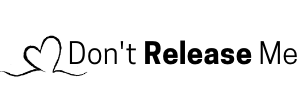I was rabbit-holed. I started out looking for medical help and ended up in some bizarre labyrinth of hell — the mental health world.
It started out innocently enough, with my husband seeking medical help for me. We started with the local emergency room, but somewhere the process got sideways, and I ended up incarcerated. Two sentences of legalese and anyone can be incarcerated to a Behavioral Unit, commonly known as a Mental Institution.
Under California Welfare and Institutions Code (WIC) 5150, an individual can be placed (involuntarily) for evaluation to a locked psychiatric facility, for up to 72 hours. Any peace officer or specific individuals authorized by a county government may place the hold. There are only three criteria used to make the determination.
The individual is assessed to be:
- a danger to themselves
- a danger to others
- gravely disabled
Per WIC 5008, grave disability is defined as an individual’s lack of ability, due to their mental illness, to provide for their food, clothing, or shelter. In the case of children, it is the inability to use food, clothing, or shelter, even if it is supplied.
This is the California Law. Crystal clear. It’s that simple. I never imagined how effortless, until it happened to me.
Simple To Get In
The law seems clear until you have to apply it. Think about all the mentally ill wandering the streets hallucinating and hearing voices, homeless, yet able to provide for themselves. Are they gravely disabled? What about someone who was incapacitated by drugs or alcohol? Are they disabled? Does talking shit constitute being dangerous? What about screaming at people? Does a dramatic statement that your life is over constitute being a danger to yourself?
In my case, my husband sought medical help for me. (I didn’t think I needed it, but that’s another topic.) The Emergency Room couldn’t find anything wrong with me, medically. They are only looking for critical, urgent issues though. In absence of that, they punt you over to psychiatry. In their world, if they don’t find it medically, it must be mental. As there is no medical test for crazy, their failure to find a medical cause can push you to the mental health side of medicine where you get trapped, and it’s like going down the rabbit hole.
It is relatively easy to provide confinement and crisis treatment to someone who is certified as unable to provide for their basic needs or is dangerous. People probably err on the side of caution, believing that it’s best to lock someone up for 72 hours than risk a bad outcome. But, someone could maliciously work the system to hold a person against their will. The criteria, while simple, are not so easily applied.
You can be incarcerated in a mental hospital without any real, tangible evidence that you belong there. There’s no evidence, no DNA, no test results. Nothing but observation. That observation could be your family or doctors. It is subjective. You could be at home, minding your own business and pulled into a hospital (like me). Once at the hospital, they could easily offer something to relax, take the edge off, calm your nerves, or similar. (In my case, taking some Atavan to relax so I could go home to rest.) The medication could knock you out. Now you’re disordered by prescribed medication. This could enable someone to invoke a mental illness claim. Clearly something is wrong, patient appears to be in crisis, incapacitated by drugs, and unable to take care of themselves. It’s that easy to get rabbit-holed.
Hard To Get Out
Getting out of the system was harder for me than getting in. You need to be observed and assessed (like getting in), but now you have the burden of proof. Unlike a medical hospital, a mental hospital does not allow you walk out. You have to stay 72 hours, and they’ll decide (based on observation) if you should be held longer. In fact, to get out you need a hearing, where the evidence against you is compiled and you have to prove your case. The judge might require a family member to be responsible for you.
At the hearing you need to prove a negative. Prove you aren’t mentally disordered or dangerous. Working against you is the intake form someone used to commit you. And opinions of staff who have compelled you to take mind-altering medication, for your own good. If you have good insurance, you’re a source of revenue, a cash cow. Can they be unbiased about that?
Consequences
Such a simple sounding law can trap people inadvertently, be misused or manipulated by bad actors, camouflage mediocre medical care, and keep you confined for weeks. Further, soft checkpoints leave too much latitude for erroneous commitment. There are no negative consequences for those working in the system. If you have good insurance, the process rewards the medical and mental health professions. They’ll help you as long as they can. The negative consequences all fall to the patient.
The law is well-intended: To get help for those that need it and don’t know they need it. As a society, we need to help those who need mental health care. The system likely works for a majority of patients, but people can get put into the system when they don’t belong there. The consequences for the patient are severe and lasting. Like being unjustly imprisoned for a crime, being unjustly incarcerated for mental illness is a stigma that isn’t easily removed. Further, I feel that I came out of a mental hospital stay in worse shape than going in. The change to my psyche, confidence, trust, faith and marriage was all negative.
Getting in a psychiatric facility was the easy part. I had a ton of help from people I knew and several I did not. Getting out and from under this mess, I was left on my own and it is a long drawn out, complicated process full of entanglements … that I am still trying to unwind.
Photo by Shannon Litt on Unsplash




Leave A Comment
You must be logged in to post a comment.